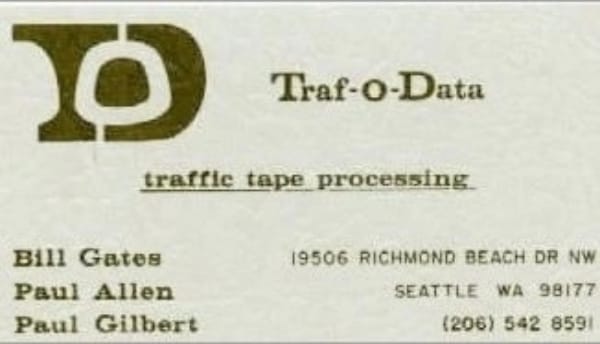How Billionaires Think: 3 Powerful Truths

Billionaires are inspiring but also mysterious. While money shows their success, we're curious about how their minds work differently. Understanding billionaires' way of thinking can help entrepreneurs succeed.
The "billionaire mindset" is about more than just making money. It's how they approach problems, take risks, create new things, and persist against difficult odds. This article explores three powerful truths about how billionaires like Jeff Bezos, Elon Musk, and others think. While billionaires are very wealthy, anyone can apply the core principles of how they think. It's about seeing the bigger picture, taking calculated risks, constantly innovating, and viewing failure as a step forward.
We'll look at real examples from top billionaires to better understand these truths and gain valuable insights to help in business.
Truth 1) Vision and Risk-Taking

At the heart of every billionaire's success story lies a powerful vision. Unlike the average individual, billionaires like Jeff Bezos and Elon Musk don't just think in terms of 'what is' – they envision 'what could be'. This ability to see beyond the present and imagine a drastically different future is a key differentiator.
Jeff Bezos, the founder of Amazon, started his journey with a vision of creating the most customer-centric company in the world. This vision wasn't just a lofty ideal; it was a strategic guide that dictated his decisions, from selling books online to transforming Amazon into a global e-commerce and cloud computing giant. His vision was clear, compelling, and far-reaching, setting a foundation for extraordinary growth.
"We had three big ideas at Amazon that we've stuck with for 18 years, and they're the reason we're successful: Put the customer first. Invent. And be patient." - Jeff Bezos
Similarly, Elon Musk's ventures like SpaceX and Tesla are rooted in his vision of a sustainable future and space exploration. His decision to invest in these high-risk industries was driven by a vision that many found unrealistic. Yet, it was this unwavering vision that propelled his companies to the forefront of innovation in their respective fields.
"When something is important enough, you do it even if the odds are not in your favor." - Elon Musk
These examples show that a well-defined vision serves as a north star for billionaires, guiding their decisions, actions, and perseverance. It’s not just about setting goals, but about having a transformative vision that can redefine industries and consumer behaviors.
Embracing Risk: A Necessary Step Towards Unprecedented Success
Hand-in-hand with vision is the billionaire's approach to risk. Contrary to popular belief, billionaires don't recklessly gamble their resources. Instead, they engage in calculated risk-taking, weighing potential losses against the transformative power of their vision.
Warren Buffett, known for his savvy investment strategies, exemplifies this approach. His decisions, while appearing conservative, are often bold moves that others might shy away from, backed by thorough research and a clear understanding of the market. Buffett’s investment in Apple, a seemingly safe bet now, was a significant risk at the time, demonstrating his ability to identify undervalued assets with long-term growth potential.
"I don't think of Apple as a stock. I think of it as our third business. It's probably the best business I know in the world. And that is a bigger commitment that percentage-wise than we have in any business except insurance and the railroad." - Warren Buffett
In the tech world, Larry Page and Sergey Brin took a substantial risk in developing Google. They ventured into an already crowded search engine market, but did so with a unique approach that revolutionized information retrieval. Their risk was not in creating just another search engine; it was in betting on an algorithm that could offer unparalleled relevance and simplicity in search results.
"I think it is often easier to make progress on mega-ambitious dreams. I know that sounds completely nuts. But, since no one else is crazy enough to do it, you have little competition. There are so few people this crazy that I feel like I know them all by first name." - Sergey Brin
This aspect of billionaire thinking shows that risk is not to be avoided, but to be embraced and managed. The risks they take are always in alignment with their vision, ensuring that even the boldest moves are strategic steps towards their ultimate goals.
Case Study: Elon Musk's Risk-Taking with SpaceX
A prime example of this is Elon Musk's investment in SpaceX. When Musk started SpaceX, the idea of a private company entering the space industry was unheard of, let alone succeeding. Facing skepticism and early failures, Musk persisted, driven by his vision of making space travel affordable and sustainable. His calculated risks paid off, with SpaceX becoming the first private company to send a spacecraft to the International Space Station. Musk's journey with SpaceX highlights how vision and calculated risk-taking can lead to groundbreaking achievements.
"I started SpaceX with the goal of reducing space transportation costs to enable the colonization of Mars. Because, at the time, the cost of launch was just way too high, and I was convinced that there had to be a way to make space travel more affordable." - Elon Musk
Truth 2) Innovation and Disruption

Innovation is not just a buzzword for billionaires; it's the lifeblood of their success. It's about seeing opportunities where others see obstacles, and turning groundbreaking ideas into reality. Billionaires like Mark Zuckerberg and Larry Page have exemplified this through their companies, Facebook and Google.
Zuckerberg, with Facebook, didn't just create a social media platform; he redefined how people connect and communicate globally. His innovation was not in the idea of a social network itself, which already existed, but in how Facebook was designed and scaled to connect billions, creating an entirely new way of social interaction and digital marketing.
"The biggest risk is not taking any risk. In a world that is changing quickly, the only strategy that is guaranteed to fail is not taking risks." - Mark Zuckerberg
Similarly, Larry Page, along with Sergey Brin, transformed the way information is accessed and organized on the internet. Google’s innovative algorithms made it possible to sift through the vast amount of data online and find precisely what the user is looking for. This innovation did not just create a successful company; it changed the behavior of internet users worldwide.
"We want Google to be the third half of your brain." - Larry Page
These examples show that billionaire innovation often lies in taking an existing idea and improving it significantly, or in creating new ways of doing things that disrupt established norms and industries.
Disruption: Rewriting the Rules of Industries
The term ‘disruption’ is often linked to billionaires who have not only built successful businesses but have also transformed entire industries. Disruptive innovation is about creating a product or service that fundamentally changes the market dynamics, often rendering traditional methods obsolete.
Consider the impact of Tesla, led by Elon Musk. The electric vehicle (EV) industry was nascent and largely ignored by major automakers when Tesla entered the market. Tesla didn’t just create another car; it developed an entire ecosystem around EVs, including innovative battery technology, a supercharger network, and a direct-to-consumer sales model. This disruption has not only catapulted Tesla to the forefront of the automotive industry but has also forced major automakers to accelerate their shift towards EVs.
"My motivation for all my companies has been to be involved in something that I thought would have a significant impact on the world." - Elon Musk
These instances underscore how billionaires use disruptive innovation to create new market opportunities, redefine consumer expectations, and challenge established industry practices.
Case Study: Amazon's Disruption of Retail
Amazon's journey under Jeff Bezos’s leadership exemplifies disruption. Starting as an online bookstore, Amazon continually expanded its offerings, challenging and transforming the traditional retail landscape. Innovations like Amazon Prime, Alexa, and Amazon Web Services (AWS) have gone beyond just selling products; they have changed how consumers shop and interact with technology. Bezos's vision of a customer-centric company propelled Amazon to not just participate in the market, but to redefine it.
"Invention comes in many forms and at many scales. The most radical and transformative of inventions are often those that empower others to unleash their creativity—to pursue their dreams. That's a big part of what's going on with Amazon Web Services, Marketplace, and Fulfillment by Amazon. When we open up these resources to anyone who wants to use them, while also building on top of them ourselves, we enable others to create even more powerful and transformative technologies." - Jeff Bezos
Truth 3) Persistence and Learning from Failure

Persistence is often the unsung hero in the narratives of billionaire success. It's the relentless drive that keeps these individuals going, even when faced with setbacks and failures. Billionaires like Warren Buffett and Bill Gates exemplify this trait, demonstrating that persistence is just as crucial as any other aspect of their mindset.
Warren Buffett’s journey was not without its share of challenges. He faced numerous rejections early in his career and made several investment mistakes. However, what sets him apart is his unwavering commitment to his investment philosophy, regardless of market trends or popular opinion. This persistence in sticking to his principles, even in the face of criticism, has been a cornerstone of his success.
"It's good to learn from your mistakes. It's better to learn from other people's mistakes." - Warren Buffett
Similarly, Bill Gates, co-founder of Microsoft, showed persistence not just in building his company but also in the face of technological challenges and market competition. Under his leadership, Microsoft persisted through various phases of the tech industry, from the PC era to the rise of the internet and beyond. Gates’ persistence in evolving and adapting Microsoft’s products has been vital in maintaining the company’s industry leadership.
"It's fine to celebrate success, but it is more important to heed the lessons of failure." - Bill Gates
These examples highlight that for billionaires, persistence is not just about continuing in the face of adversity; it's about staying true to their vision and values, continually striving for improvement and excellence.
Learning from Failure: Turning Setbacks into Stepping Stones
A defining characteristic of the billionaire mindset is how they view and learn from failure. Unlike many, billionaires do not see failure as a defeat but as an opportunity to learn and grow. This perspective is crucial in their journey to success.
Bill Gates, for instance, had his first business venture, Traf-O-Data, which failed to take off. However, this failure provided him with valuable lessons and experience, which he later applied in founding and growing Microsoft. Similarly, Warren Buffett has openly talked about his investment mistakes, viewing them as learning opportunities that have shaped his investment strategies.

This approach to failure is critical for entrepreneurs and business owners. It shows that failure is not the end of the road but an integral part of the journey to success. By learning from their mistakes and not repeating them, billionaires turn their setbacks into stepping stones towards greater achievements.
Case Study: Steve Jobs and Apple's Evolution
Apple's history is punctuated with moments of both triumph and failure, but what sets the company apart is its remarkable ability to persist and learn from its missteps. Apple's co-founder, Steve Jobs, famously experienced setbacks in his career, including being ousted from the company he started. However, his return to Apple in 1997 marked a turning point. The company's journey to success wasn't without product flops, like the Newton and the Lisa, but each failure became a stepping stone to future achievements.
Apple's culture embraces the philosophy that failure isn't the end; it's an opportunity to iterate and innovate. This resilience and commitment to learning from mistakes have allowed Apple to continually evolve, releasing groundbreaking products like the iPhone and iPad, and securing its position as one of the world's most influential technology companies. Apple's ability to persist and glean valuable insights from its failures has been instrumental in shaping the tech landscape as we know it today.
Final Thoughts
As we conclude this exploration into how billionaires think, it's clear that their success is not a matter of chance. It's the result of a distinctive mindset characterized by vision, innovation, risk-taking, persistence, and a unique approach to failure. These three powerful truths - vision and risk-taking, innovation and disruption, persistence and learning from failure - are not exclusive to billionaires. They are principles that entrepreneurs and business owners can adopt and adapt in their own journeys.
The stories of Jeff Bezos, Elon Musk, Mark Zuckerberg, Warren Buffett, Bill Gates, and Steve Jobs are more than just tales of financial success; they are lessons in thinking differently, challenging norms, and persistently pursuing one's goals. By embracing these principles, aspiring entrepreneurs can pave their way to not just business success, but also to making a significant impact in their industries and communities.
Remember, the journey of a thousand miles begins with a single step. Take that step today with the truths learned from the world's most successful billionaires. Embrace their mindset, apply these truths, and watch as new horizons of possibility open up for your business.
Key Takeaways
| Truths | Takeaways |
|---|---|
| 1. Vision and Risk-Taking | - Billionaires have a clear, far-reaching vision that guides their decisions. - They engage in calculated risk-taking, aligning risks with their vision. |
| 2. Innovation and Disruption | - Innovation for billionaires is about improving existing ideas or creating new ways of doing things. - They use disruptive innovation to transform industries and redefine market dynamics. |
| 3. Persistence and Learning from Failure | - Persistence is crucial, focusing on staying true to their vision and values. - Billionaires view failures as opportunities to learn and grow, turning setbacks into stepping stones. |
Top Books
- "The Virgin Way" by Richard Branson: This book offers lessons on management and entrepreneurialism from the billionaire founder of Virgin Group. Branson shares insights from his nearly 50-year career, including both successes and failures.
- "Onward" by Howard Schultz: This book details how Schultz, the CEO of Starbucks, revived the company during a financial crisis. It combines his unique business strategy with personal anecdotes, offering inspiration for overcoming adversity.
- "How to Win at the Sport of Business" by Mark Cuban: In this book, Cuban, owner of the Dallas Mavericks and Shark Tank investor, shares his journey from sleeping on friends' couches to becoming a multibillionaire. The book emphasizes commitment and perseverance.
- "The Essays of Warren Buffett" by Warren Buffett: A collection of Buffett's letters to Berkshire Hathaway shareholders, providing insights into his business and investment philosophies.
- "Business @ the Speed of Thought" by Bill Gates: Gates discusses the interlinking of business and technology, using examples from Microsoft and other companies.
- "Bloomberg by Bloomberg" by Michael Bloomberg: Bloomberg's autobiography details how he built a media empire, with insights on leadership and management based on personal experience.
- "Zero to One" by Peter Thiel: Thiel, a founder of PayPal, emphasizes the importance of building new things and dominating markets, rather than just adding to what exists.
- "Call Me Ted" by Ted Turner: Turner's autobiography outlines his path to success, including turning a small news station into a media empire.
- "Think Like a Champion" by Donald Trump: A collection of essays on personal and professional success, combining anecdotes with inspirational advice.
- "The First Billion Is the Hardest" by T. Boone Pickens: This book tells Pickens's story from being a "corporate raider" to an advocate for America's energy independence, with personal wisdom on winning in life and business.
- "Soros on Soros" by George Soros: Combining personal anecdotes with theories on finance and politics, Soros shares his journey and opinions as founder and chairman of Soros Fund Management.





